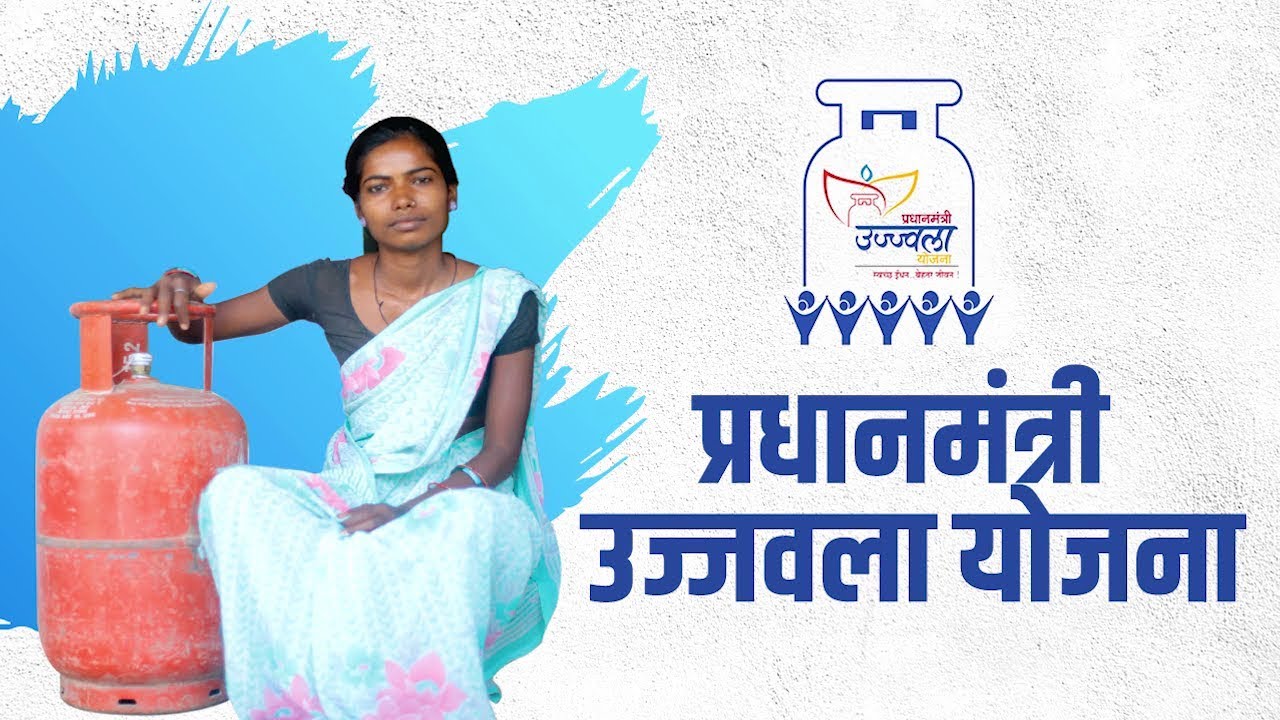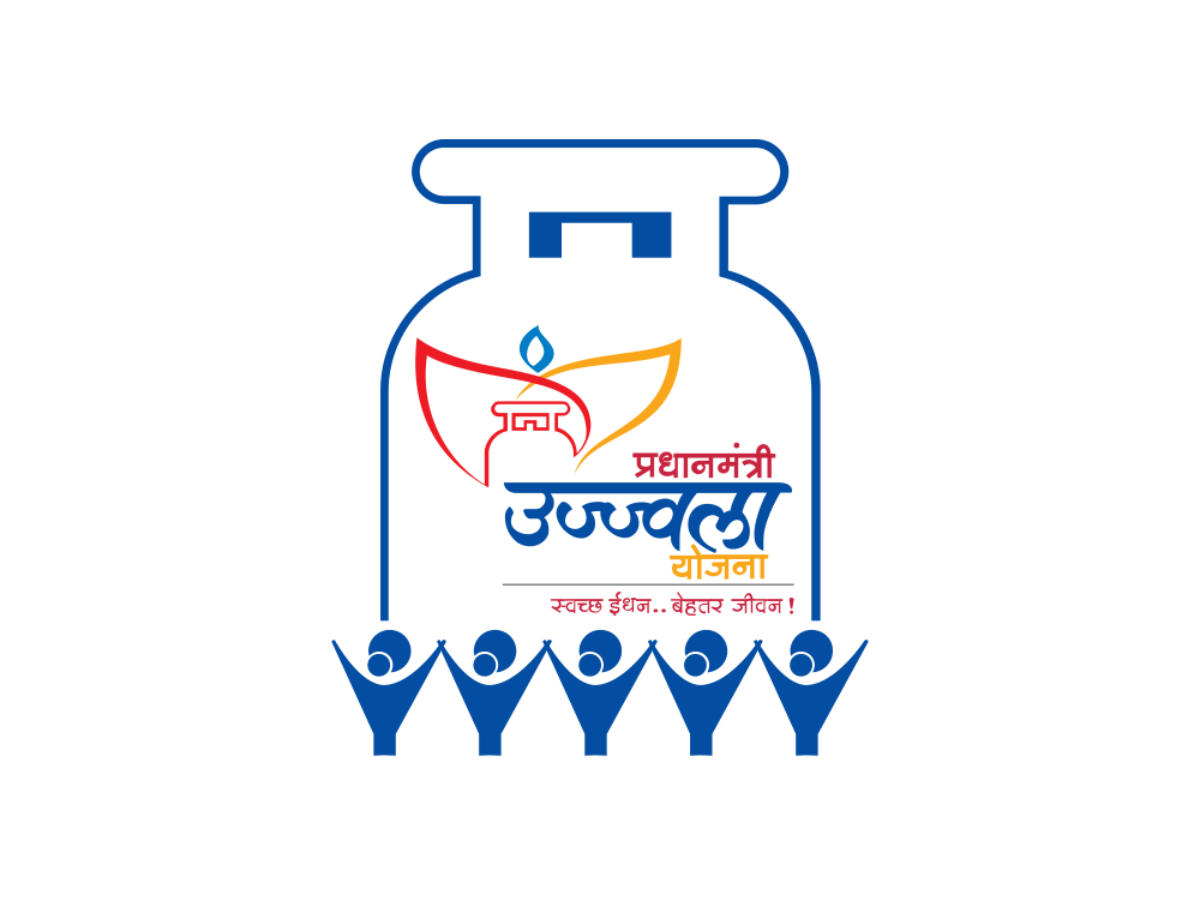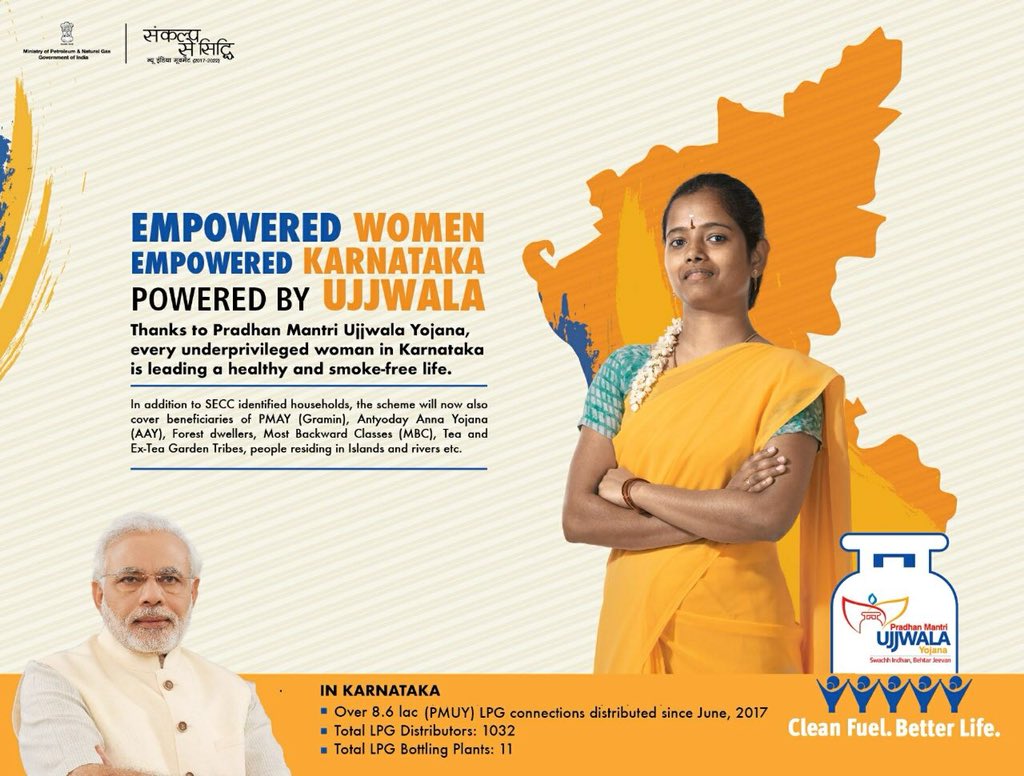Cabinet Approves Ujjwala Extension: Enhancing Clean Fuel Access in India 2023

Cabinet Approves Ujjwala Extension: Enhancing Clean Fuel Access in India 2023
The Pradhan Mantri Ujjwala Yojana (PMUY) was extended by the Union Cabinet on Wednesday with an extra allocation of Rs 1,650 crore to provide an additional 7.5 million deposit-free LPG connections over the following three years.
PMUY subscribers are receiving a targeted subsidy of Rs 200 each 14.2 kg LPG cylinder for up to 12 refills per year. The ministry of petroleum and natural gas warned that without PMUY, eligible poor households would not be able to get their full benefits under the programme.

In a landmark decision, the Union Cabinet of India has approved the extension of the Ujjwala scheme, a move that underscores the government’s commitment to expanding access to clean cooking fuel across the country.
Initially launched in 2016, the Ujjwala scheme has been transformative for millions of households, largely benefitting rural areas and marginalized communities. This article delves into the implications of the Cabinet’s approval, analyzing its significance and the challenges that lie ahead.
The Pradhan Mantri Ujjwala Yojana (PMUY), launched in May 2016, aims to supply clean cooking fuel to low-income households nationwide. A deposit-free LPG connection is offered to adult women from low-income households under PMUY.
96 million connections have been provided under the Ujjwala Yojana as of this writing. Another 7.5 million free LPG connections would be provided to assist poor and needy women in light of the demand.

Anurag Thakur, minister of information and broadcasting, stated during a press briefing that the majority of them are dependent on wood and coal, which harms women’s health in addition to harming the environment.There are still some eligible houses without an LPG connection.
The Pradhan Mantri Ujjwala Yojana (PMUY), commonly known as the Ujjwala scheme, was launched with the aim to provide Liquefied Petroleum Gas (LPG) connections to Below Poverty Line (BPL) households. The scheme initially targeted 50 million households and was later expanded. It sought to replace traditional cooking fuels like firewood and coal, which pose serious health risks due to indoor air pollution.
In order to make up for selling LPG at a loss for the previous two years, the government gave the three OMCs a grant of Rs 22,000 crore last year. According to the National Sample Survey Office (NSSO), 90% of urban families and close to 50% of rural households in India utilise LPG as their major energy source. The third phase of the eCourts Project, a central sector programme with a budget of Rs 7,210 crore to be implemented over four years, was also approved by the Cabinet.

The Cabinet’s approval of the extension comes with the introduction of several key features designed to make the scheme more impactful:
- The extension aims to cover an additional 10 million households, focusing on areas that were left out in previous phases.
- A revision of the subsidy model has been announced, ensuring that the economic barrier for using LPG is minimized.
- The extension includes funding for awareness campaigns, particularly targeting rural areas where traditional cooking fuels are still prevalent.
- Investments will be made in developing LPG distribution networks to improve last-mile connectivity.
- There is a renewed focus on using sustainably sourced LPG to minimize the environmental impact.
One of the immediate benefits of the Ujjwala scheme’s extension is the anticipated reduction in air pollution. Traditional cooking methods generate high levels of indoor air pollution, contributing to climate change and health issues.
Replacing traditional cooking fuels with LPG has tremendous social benefits. It reduces the time and labor required for cooking, thereby liberating women from the drudgery of fuel collection and allowing them more time for other activities, including education and employment.

By making LPG accessible and affordable, the scheme aims to increase disposable income among low-income households, indirectly boosting local economies. The development of LPG infrastructure will also generate employment.
Ensuring a seamless distribution network, especially in remote areas, remains a challenge.Despite subsidies, the success of the scheme is contingent on changing long-standing habits, requiring significant awareness campaigns.The sourcing and production of LPG must be closely monitored to ensure they are sustainable.
The Cabinet’s approval of the Ujjwala extension marks a significant milestone in India’s social welfare and environmental initiatives.

While the extension comes with ambitious goals and challenges, it holds the promise of transforming millions of lives by providing access to clean, safe, and efficient cooking fuel.
It’s a step forward not just in achieving energy security but also in advancing the country’s commitments to social equity and environmental sustainability.



